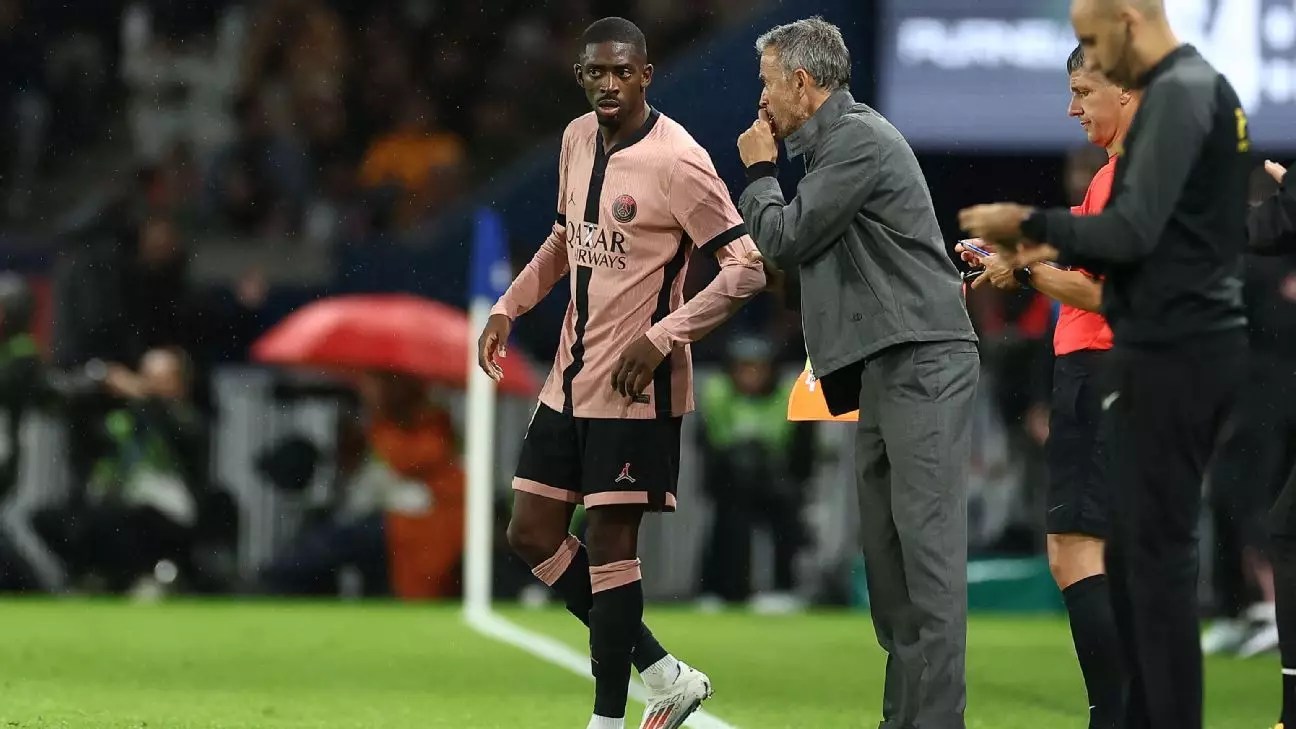The football world is buzzing with reports of a rift between Ousmane Dembélé and his manager, Luis Enrique, at Paris Saint-Germain (PSG). The talented winger has not made the trip to London for the highly-anticipated Champions League encounter against Arsenal. This decision follows an on-pitch altercation between Dembélé and Enrique, just a day after the team celebrated a convincing 3-1 victory over Rennes. It appears the disagreement was serious enough that Enrique has opted to exclude Dembélé from the squad, signifying a deeper issue beyond mere tactical decisions.
Sources close to the club have indicated that PSG stands firmly behind Enrique’s decision. During a press conference, the manager addressed the situation directly, declaring that “if someone doesn’t meet the requirements of the team, it means in my opinion that they are not ready.” His comments reflect a philosophy that prioritizes team cohesion and discipline, vital pillars in the competitive landscape of top-tier football.
Enrique’s approach is telling of the culture he aims to establish at PSG. By stressing the need for commitment during a critical stretch of the season, he reinforces the idea that every player’s mental and physical readiness is paramount. His insistence on discipline is not a new concept; he previously made headlines by leaving star players out of crucial matches when he felt they were not working hard enough in training. This standard raises questions about Dembélé’s commitment, especially considering the player’s remarkable start to the Ligue 1 season. With four goals and four assists to his name in just six outings, Dembélé has undoubtedly showcased his talent.
Yet, this incident reveals a complex narrative about player-manager relationships, especially in an environment filled with high expectations of performance and behavior. While Dembélé is battling for his place on the squad, the underlying concern for Enrique appears to revolve around maintaining order and discipline within his ranks. As he hedges his decisions on performance metrics, fans and analysts alike are left to ponder how personal disagreements might affect team dynamics.
The timing of this conflict could not be more precarious, with PSG set to face Arsenal, a fixture that often carries weight beyond mere points. For both clubs, the revamped Champions League is an opportunity to establish dominance early on. PSG enjoyed success in their opening match against Girona, while Arsenal hopes to bounce back after a disappointing draw against Atalanta.
As PSG travels to the Emirates without one of their key players, the situation raises stakes not just for Dembélé, but also for the entire squad. How the team copes with the absence of a player who has shown such promise will be a testament to both Enrique’s leadership and the players’ resolve. The pressure is mounting, and it will be interesting to see how team cohesion and resilience manifest on the field amidst these controversies.
The Dembélé-Enrique fallout highlights the intricate balance of talent, discipline, and teamwork crucial for success in professional football. As PSG faces Arsenal under these clouds of tension, the outcome could redefine the season for both the player involved and the team as a whole.


Leave a Reply